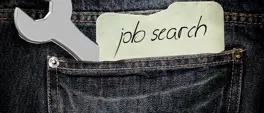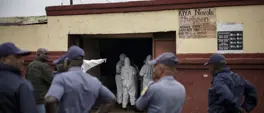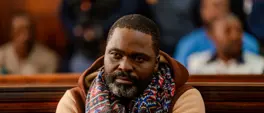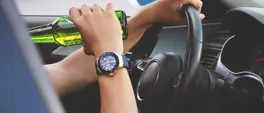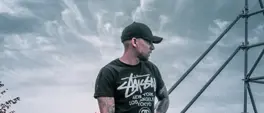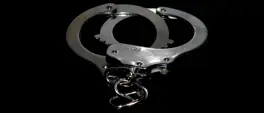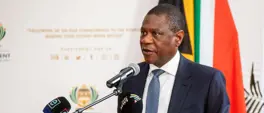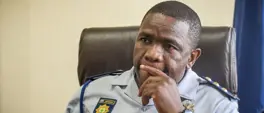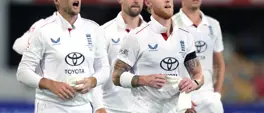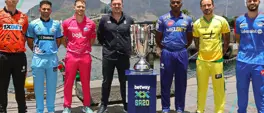Montjane, Du Toit named as flagbearers for Paralympic Games
Palesa Manaleng
23 August 2021 | 15:10Para-athlete Charl du Toit and wheelchair tennis player Kgothatso Montjane are both competing in their third Paralympics, having represented Team SA at both the London 2012 and Rio 2016 Games.
JOHANNESBURG - Charl du Toit and Kgothatso Montjane have been named the two flagbearers for Team SA at Tuesday's opening ceremony of the 2020 Tokyo Paralympics.
The duo are part of a group of 34 athletes who will be representing the country across seven sporting codes from 24 August to 5 September.
Para-athlete Du Toit and wheelchair tennis player Montjane are both competing in their third Paralympics, having represented Team SA at both the London 2012 and Rio 2016 Games.
Du Toit is a 100m world record holder and he bagged two gold medals in Rio when he snatched the T37 100m and 400m titles.
Meanwhile, the SA wheelchair tennis ace recently made Wimbledon history by being the first black South African woman to reach the final at Wimbledon while also reaching the doubles final.
Meet Team SA’s Flag-bearers for the #Paralympics Opening Ceremony
— Team South Africa (@TeamSA2024) August 23, 2021
Congrats to you both, @KGmontjane1 @Charldutoit37 👏🇿🇦
🗓 24/08/2021
⏰ 13:00 CAT pic.twitter.com/p4aTQBOgqq
The number of athletes selected is less compared to the 2016 Rio de Janeiro Games where South Africa sent 45 athletes in 10 sporting codes.
The Rio squad brought home 17 medals - seven gold, six silver and four bronze medals. The London team won 29 medals -eight gold, 12 silver and nine bronze.
At the Tokyo Games, there are 22 sports, with 4,400 athletes competing in different categories and classes depending on the nature of their disability. Badminton and taekwondo are appearing for the first time.
Watch: Join us in wishing Team South Africa @TeamSA2020 🇿🇦 all the best as they prepare to compete in the Paralympics taking place in Tokyo, Japan from Tuesday, 24 August.
— Ambassador Nathi Mthethwa (@NathiMthethwaSA) August 20, 2021
We're confident that they will fly our flag high & make the nation proud. #Paralympics #TeamSouthAfrica pic.twitter.com/euiGdsiMXb
HOW ATHLETES ARE GROUPED
Athletes are grouped into classifications based on their physical abilities and this is used to decide which athletes are eligible to compete in each of the sports.
The aim is to create a level playing field by grouping athletes into classes based on their ability to perform certain activities.
Classification provides a structure for Paralympic competition. Athletes competing in Para sports have an impairment that leads to a competitive disadvantage.
A system has been put in place to minimise the impact of impairments on sports performance and ensure an athlete's success is determined by skill, fitness, power, endurance, tactical ability, and mental focus. This system is called classification.
Every para-athlete has gone through an evaluation conducted by officials known as “classifiers,” who are appointed by the international governing body of that particular sport.
Classification determines who is eligible to compete in a para-sport, and it groups the eligible athletes in sport classes according to their activity limitation in a certain sport.
At the Tokyo Paralympics, you will see athletes with physical, vision and/or intellectual impairments that have at least one of the following 10 eligible impairments: Impaired muscle power, Impaired passive range of movement, limb deficiency, leg length difference, short stature, muscle tension, uncoordinated movement, involuntary movements, vision impairment and intellectual Impairment.
Each sport has different physical demands and so sports classes are different for each sport. This means that a sport class does not necessarily comprise athletes with the same impairment.
If different impairments cause similar activity limitations, athletes with these impairments are allowed to compete together.
Some sports only have one sport class, for example, powerlifting.
Meanwhile, athletics has 52 sport classes that comprise different disciplines - running, jumping, throwing events and the sport includes athletes of all 10 eligible impairments.
Next stop, Tokyo, Japan! ✈️🇿🇦🇯🇵#TeamSA#Tokyo2020#Paralympics pic.twitter.com/4B0q7FMU1i
— Team South Africa (@TeamSA2024) August 17, 2021
TEAM SA'S PARA-ATHLETES:
ARCHERY
Shaun Anderson, Philip Coates-Palgrave.
Coach/manager: Barbara Manning.
PARA-CYCLING
Nicholas Pieter du Preez, Ernst van Dyk, Toni Mould.
Coaches/management: Elrick Kulsen, Pieter Jansen, Gillian Evans, Walter Lutch.
EQUESTRIAN
Philippa Johnson-Dwyer, Cayla van der Walt.
Coaches/management: Ingeborg Sanne, Chris Hazen, Robyn van Lijsdonk, Trisha Bell.
PARA-SWIMMING
Christian Sadie, Hendrik van der Merwe, Katherine Swanepoel, Alani Ferreira.
Coaches/management: Theo Verster, Keith Jansen.
TABLE TENNIS
Theo Cogill.
Coach/manager: Anver Lyners.
WHEELCHAIR TENNIS
Kgothatso Montjane, Mariska Venter, Eliphas Maripa, Leon Els.
Coaches/management: Gerald Stoffberg, Saidi Moruame.
PARA-ATHLETICS Ntando Mahlangu, Charl du Toit, Dyan Buis, Reinhardt Hamman, Kerwin Noemdo, Mpumelelo Mhlongo, Tebogo Mofokeng, Tyrone Pillay, Daniel du Plessis, Puseletso Michael Mabote, Ndodomzi Ntutu, Anrune Weyers, Sheryl James, Simone Kruger, Ntombizanele Situ, Louzanne Coetzee, Johanna Pretorius, Liezel Gouws Coaches/management: Cornelia (Lappies) Swanepoel, Suzanne Ferreira, Daniel Damon, Cathy Lansberg, Claus Kempen, Erasmus Badenhorst
Get the whole picture 💡
Take a look at the topic timeline for all related articles.


